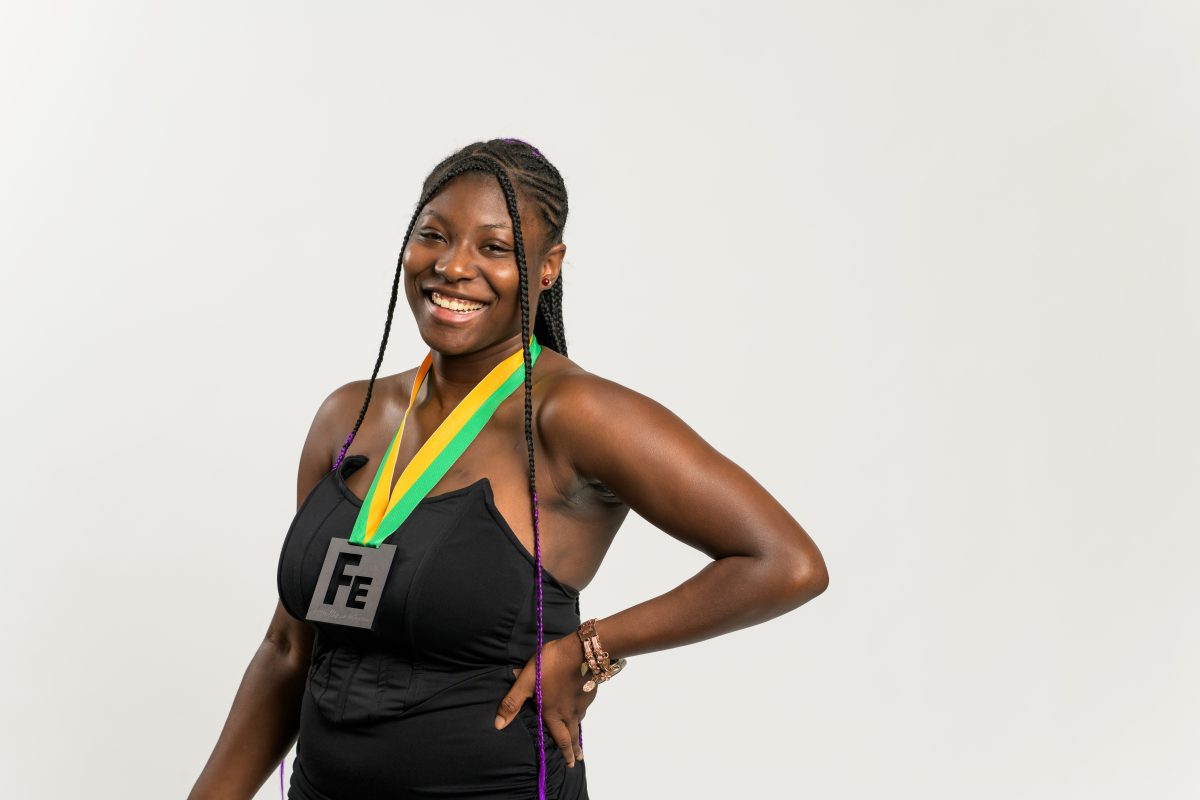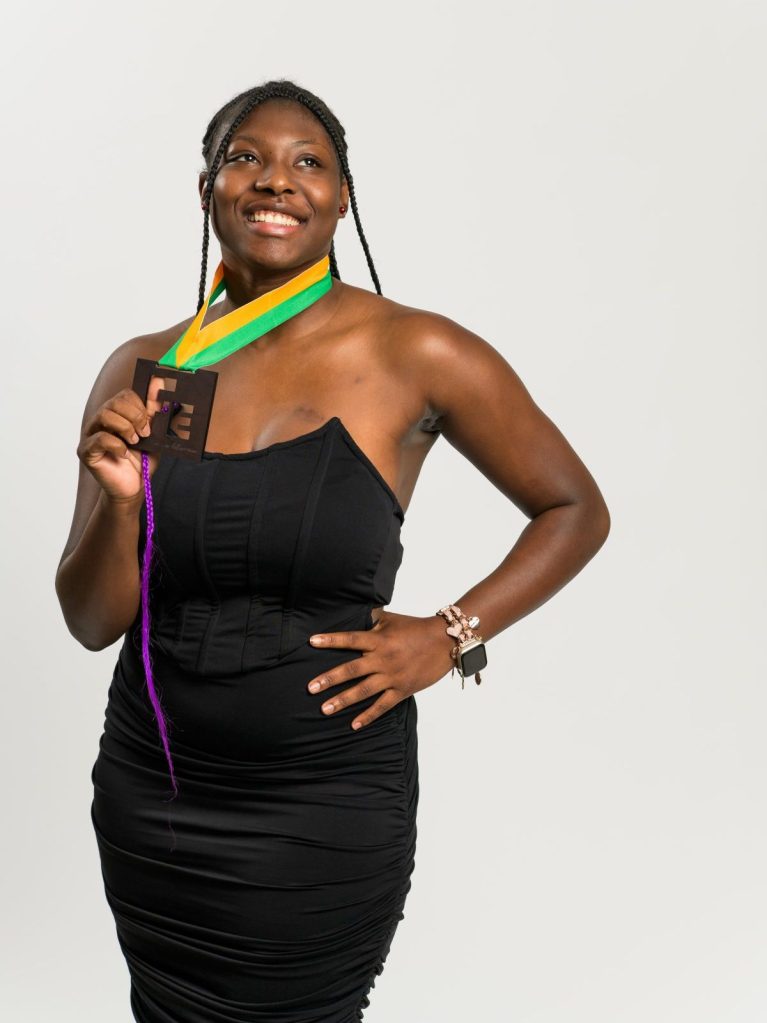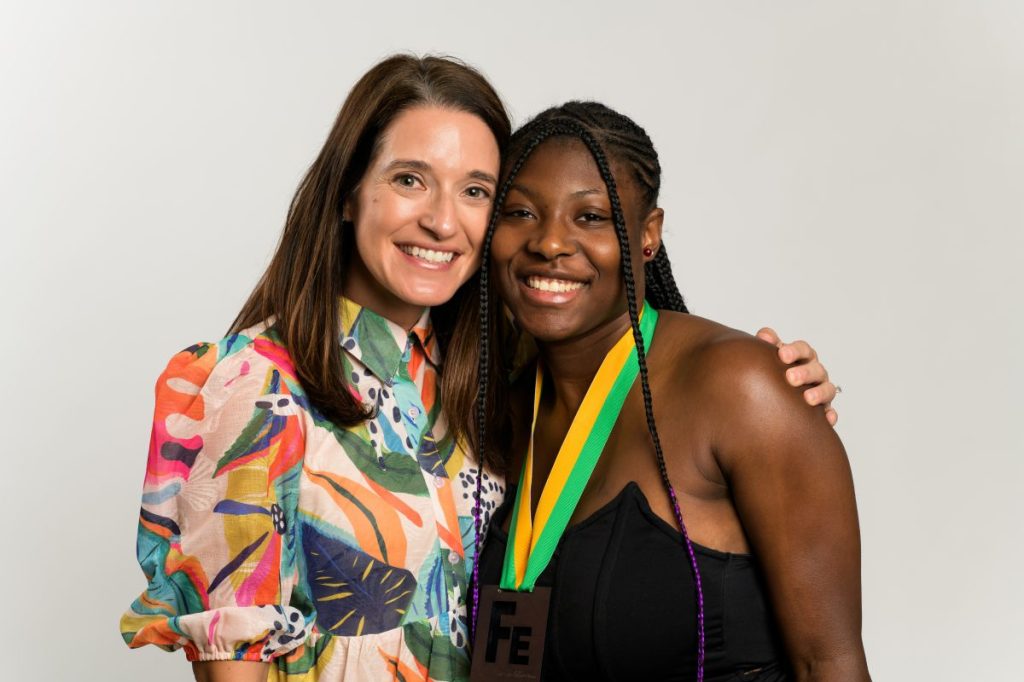
Iyanla Chaney
Iron Strong Awards 2024
Physician: Aman Wadhwa, M.D., MSPH
Cancer type: Hodgkin’s Lymphoma
Iyanla Chaney was 18 years old and only a few months away from graduating high school when she was diagnosed with stage 4 Hodgkin’s lymphoma. Chaney was a seemingly healthy athlete who suddenly had to stop running track and put her college plans on hold.
Oh, and all this occurred during the spring of 2020, meaning Chaney was approaching one of her life’s milestone moments while dealing with a cancer-Covid combo.

“Everything was hitting me all at once. The cancer diagnosis, not having a proper graduation, no prom,” Chaney says. “I couldn’t really do anything, because on top of having cancer I was trying not to get sick [from Covid]. So for most of my 2020, I was either at the hospital or at home. It was really difficult.”
Two things made the ordeal a little easier for Chaney to endure. The first was the support of her family, especially the determination of Chaney’s mother, to ensure that their daughter remained active and positive.
“My mom didn’t pity me or make me feel sad about it,” Chaney says. “She made me get up and do things, even when I didn’t want to. She said, ‘Physically, you’re sick. But mentally, you’re not. You still have a life to live, so you’re going to live it.’ I’m glad I had that support system.”
In addition, after consulting with Children’s of Alabama pediatric hematologist and oncologist Aman Wadhwa, M.D., MSPH, Chaney agreed to take part in a clinical trial of a medication designed to have fewer side effects than the standard therapy for her type of cancer without losing the effectiveness. Not only has Chaney been in remission for the past three years, but her treatment turned out to be more tolerable than she had expected.

“In general, Hodgkins’s lymphoma is very curable. So, a lot of the focus recently has been in reducing the treatment intensity and using more immunotherapy methods, while at the same time maintaining the excellent cure rates that we have,” Wadhwa says. “For somebody who still has decades of productive life ahead of them, it’s important to have treatments that are not only effective but also safe from negative side effects than can impact them long-term.”
Some frustrating memories are the only negatives Chaney still has from her 2020 cancer experience. Since going into remission, she has earned a dual degree from Lawson State Community College in psychology and behavioral sciences, and she is about to enter the University of Alabama in Huntsville with plans to major in sociology.
“At first, I wasn’t sure about a clinical trial, but it was the best thing I could have done,” Chaney says. “Because not only did it help me have a better life, I know it’s going to benefit a lot of other people as well.”


